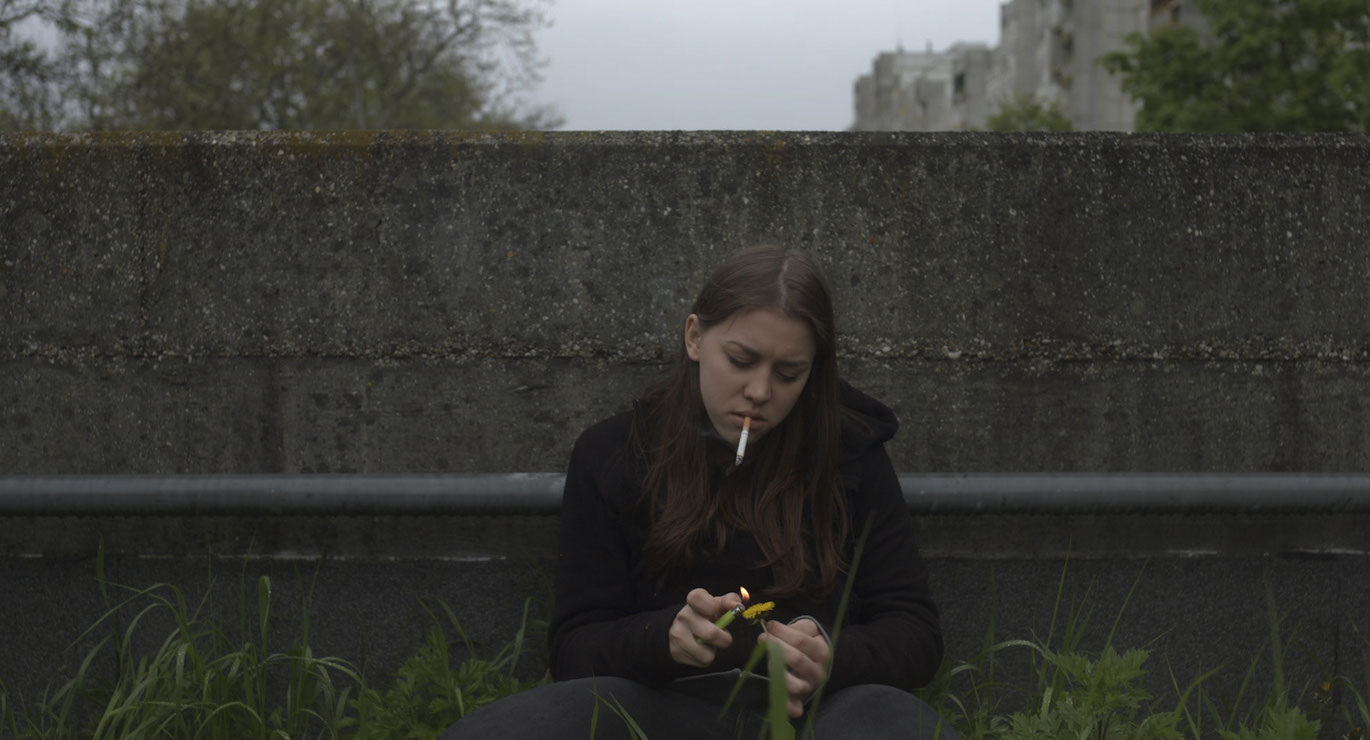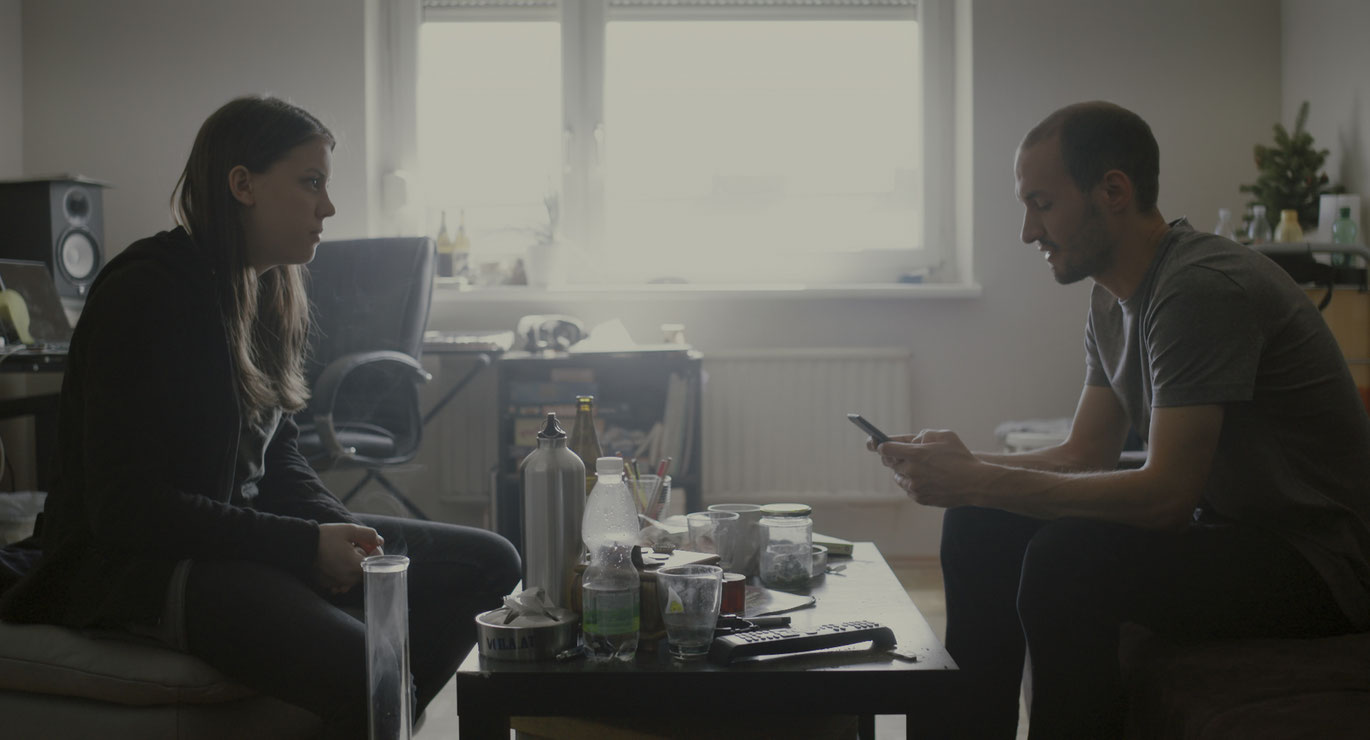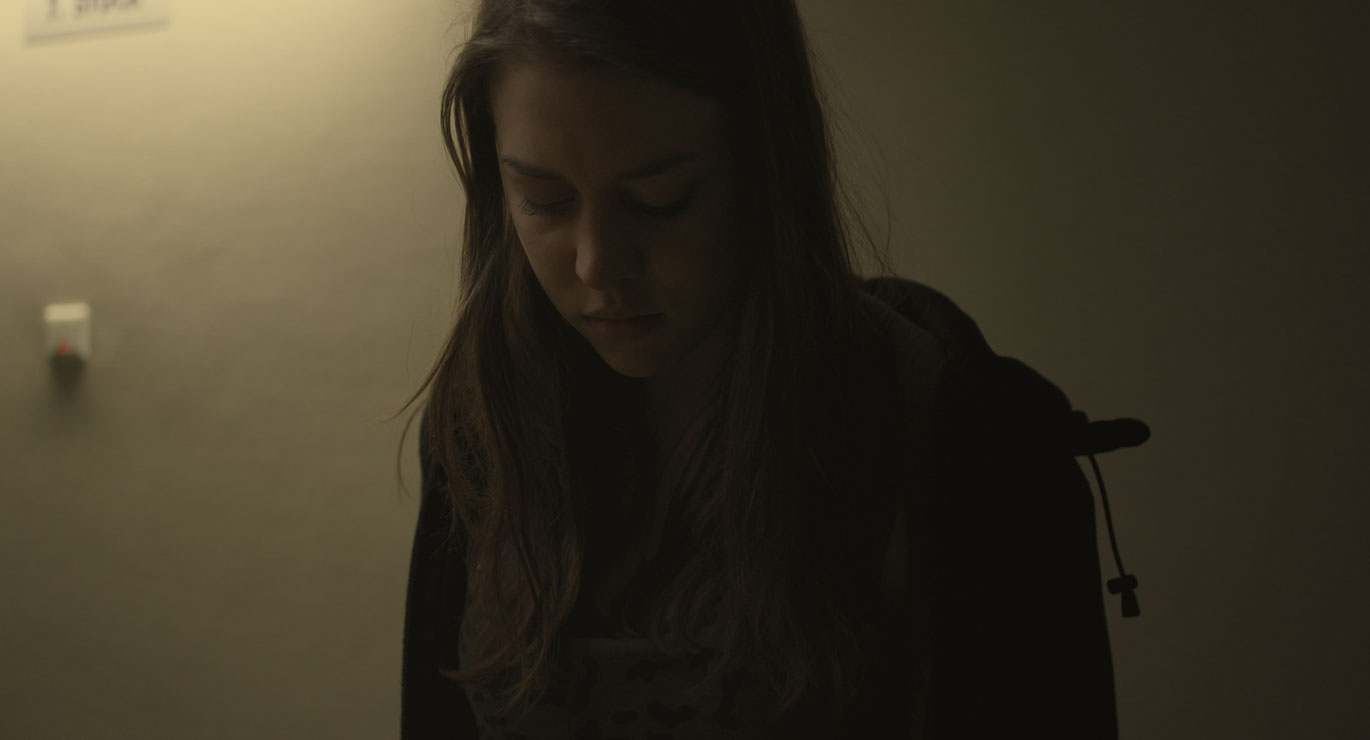Voltage
He is a musician. She is in love with him. This is not expressed in so many words, but you sense it in how she looks at him – you hear it in her voice and the way she asks this slightly older guy to play her something from the live set he will be performing that night. She would really be into going with him to the party. But he simply ignores her hints. The (non-)relationship between these two is like an electric current. You feel it, you hear it crackling – but you cannot see it. Samira Ghahremani´s Voltage is an appropriate title for this short film that experienced its world premiere at the Berlinale. The camera mainly stays up close to the body of lead actress Alina Schaller as Ghahremani narrates the story of the young woman´s unrequited love, yet the visualization remains unobtrusive and calm. Schaller´s character is reminiscent of "Rosetta" in the Dardenne brothers´ eponymously titled film. She is young and beautiful, but hardened by life – hardened against others and against herself.
But back to the "voltage" of the title. Because of course, an electric current can also cause injury. The imbalance of power between the man and the woman does neither of them any good. The man exploits his apparent dominance without really taking pleasure in his sadistic gestures. On the other hand, the young woman seems enraged by her romantic feelings and how they are entirely out of place in the frigid atmosphere of the urban housing development where the two meet. But smoking is always appropriate. Under Ghahremani´s direction, cigarettes and water-pipes facilitate an aggressive, compensatory action in the wake of love gone wrong. And in the finale, the electricity metaphor becomes concrete: Disillusioned affection leads the young woman to resort to desperate measures. She makes a clean break. Because anything is better than the high voltage of this appalling tension. (Maya McKechneay)
Translation: Eve Heller
Voltage
2017
Austria
16 min



